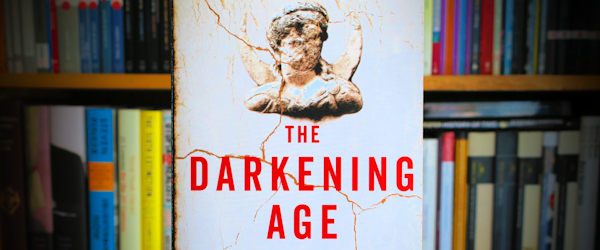 Throughout the history of humanity, intellectual progress has always depended on reason and the freedom to ask, question, doubt and, above all, to experiment. But human advancement suffered a brutal halt during a dark period that started in the mid 380’s in the city of Palmyra and ended in Athens around the year 529, an era of retrogression exposed in the eye-opening book “The Darkening Age” by Catherine Nixey.
Throughout the history of humanity, intellectual progress has always depended on reason and the freedom to ask, question, doubt and, above all, to experiment. But human advancement suffered a brutal halt during a dark period that started in the mid 380’s in the city of Palmyra and ended in Athens around the year 529, an era of retrogression exposed in the eye-opening book “The Darkening Age” by Catherine Nixey.
During this darkening age, Christianity executed a ruthless, violent attack against the classical world, destroying temples, shattering ancient statues, burning down libraries with thousands of irreplaceable books on science, history, and literature, threatening philosophers and intellectuals, and murdering thousands who refused to convert to Christianity.
This setback delayed human progress for the next millennium, as the Church led the foundations of theocratic oppression, dominating European thought with vicious force, and restraining society through a combination of ignorance and fear.
It was a big loss for human advancement. Greek philosophers who taught humanism and reason, who favored education in the sciences, were suppressed. Atheism, science, and philosophy were all targeted by Christianity. For them, the very idea that mankind could explain everything through science was disparaged as absurd, it was seen as a threat to their Christian dogma and its ability to control the masses (remnants of that continue today).
One of the biggest losses uncovered in the book, happened in the year 392, when the world’s first public library (considered the most beautiful building at the time), The Great Library of Alexandria, was attacked and destroyed by a large mob of Christian parabalani led by Theophilus, the Bishop of Alexandria. Among the irreparable damages was the burning of tens of thousands of books and the destruction of the statue of Serapis, a diplomatic monument and symbol of unification, created to bring harmony to the diverse races in the city.
But Alexandria not only collected books, but it was the home of many intellectuals, who were also persecuted and whose works were destroyed. Famous mathematician and physicist Archimedes had studied there, as well as astronomers Eratosthenes and Aristarchus of Samos, the poet Callimachus, and, among other figures residing in the city, the brilliant mathematician Hypatia. And this was the hardest part of the book to read for me, when the parabalani capture Hypatia and murder her in the most vicious way. Her killers were monsters, there is no other way to call them.
There are many other dark episodes in this very well researched book by Catherine Nixey, and it makes me reflect a lot on these types of events that impacted all of humanity. History cannot be silenced, no matter who it makes uncomfortable. On the contrary, we must learn from it, talk about it, and recognize the unpleasant episodes, so they never happen again.